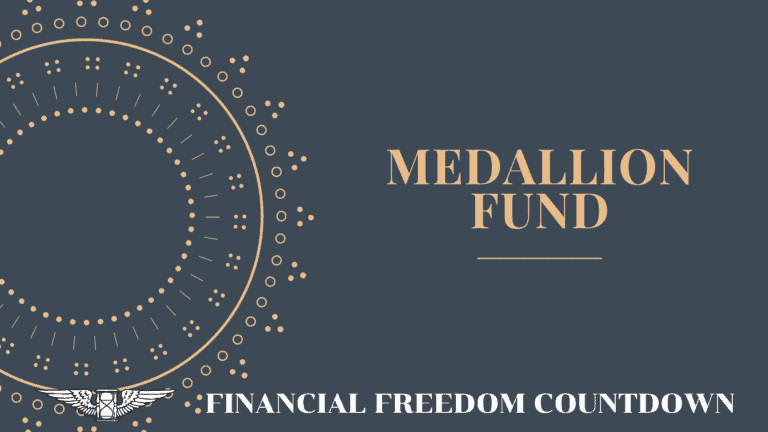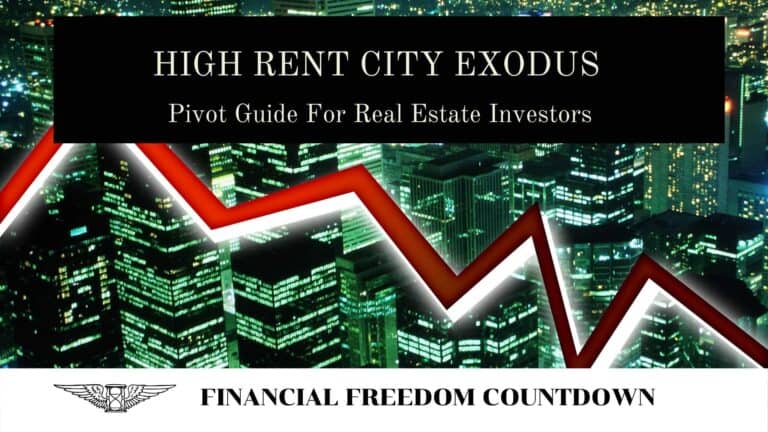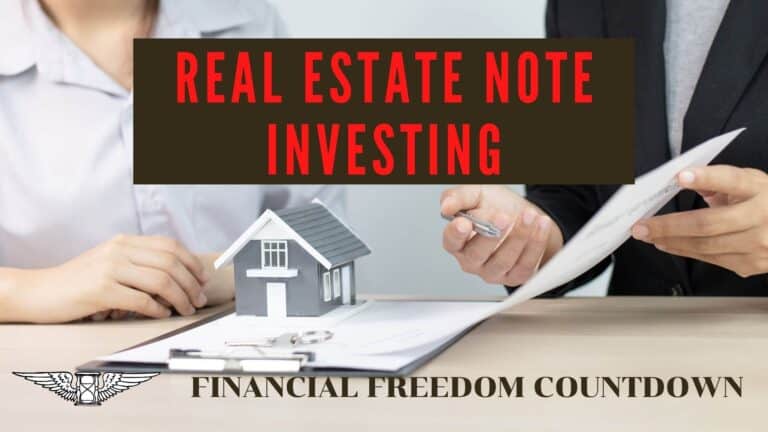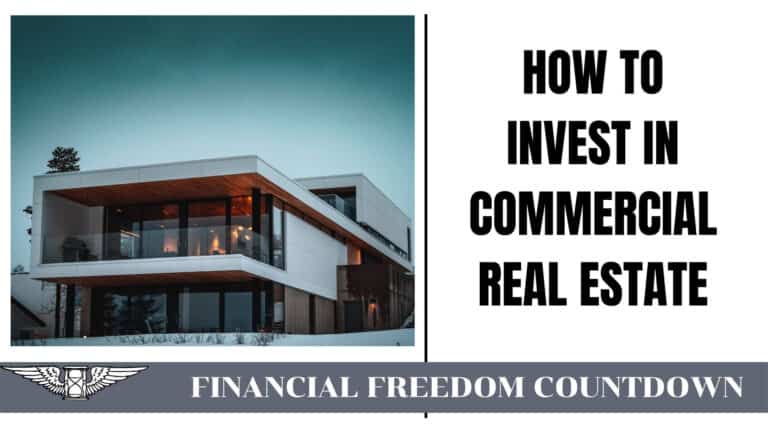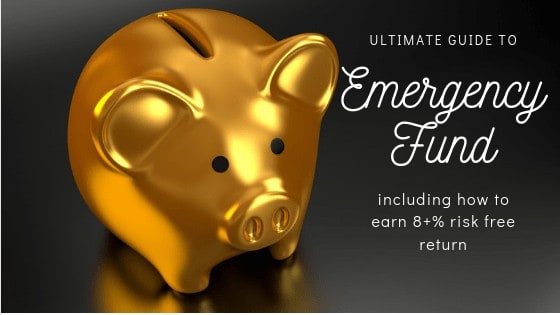14 Best Real Estate Books For Beginners: How To Get Started Investing
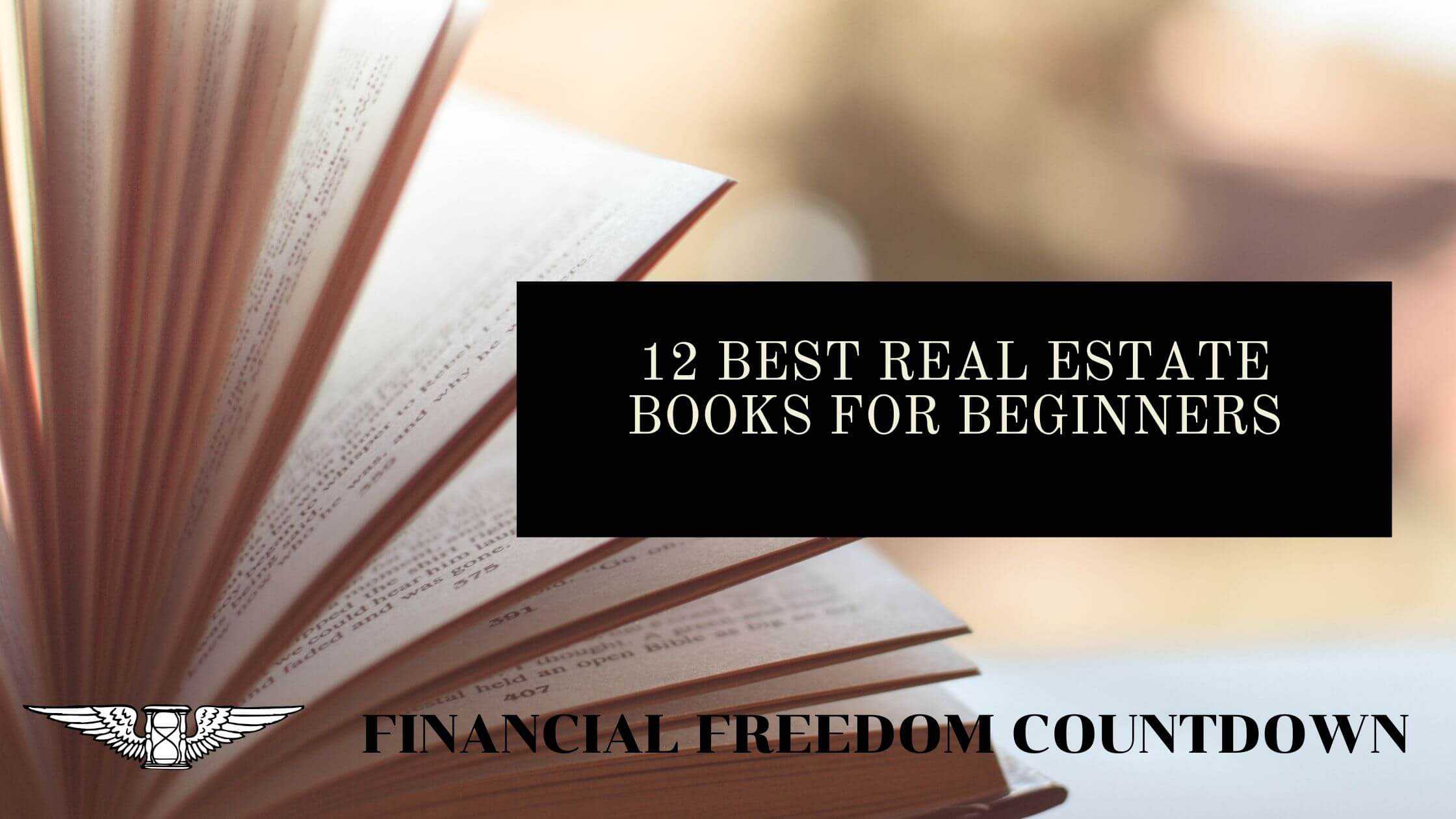
Real estate investing is a great way to build wealth, but it is also easy to get in over your head and lose money. Real estate investing is also complicated since there are a variety of ways to invest in real estate. It can be challenging for new investors to get started because there are so many moving parts that they don’t understand or know where to begin.
There are lots of books out there that promise to help you succeed in real estate. Still, many of them don’t include the practical advice you need to avoid common mistakes or provide actionable guidance on making money.
We’ve put together this list of best real estate books for beginners as an easy way for new investors like yourself to get started on their path towards financial freedom. These resources will help you figure out what type of property would work best for your investment goals and give you a strong foundation in all aspects of investing, from finding properties, managing tenants, and more! This list has everything you need to start building wealth with real estate today!
Rich Dad Poor Dad by Robert Kiyosaki
Rich Dad Poor Dad is one of the most influential books ever written on investing. The book is narrated as a story of growing up with two dads – the poor dad (his birth father) and the rich dad (his best friend’s wealthy father).
The poor dad works a full-time job and makes enough money to live on but never invests in assets.
The book explains the difference between assets and liabilities. Assets put money in your pocket, while liabilities take away your hard-earned money. Understanding the simple principle of passive income-producing assets can make you financially independent. It’s not just about having money but also investing your cash flow wisely so that it can generate even more of a return over time!
Kiyosaki tackles how financial literacy is essential. The rich dad encouraged talking about money and business at the dinner table. The poor dad forbade the subject of money to be discussed over a meal.
Kiyosaki is a huge fan of real estate. Although he made his fortune not through real estate but due to his paid seminars and royalties, the principles in Rich Dad Poor Dad are solid.
Building Wealth One House at a Time by John Schaub
If you want to buy your first property, Building Wealth One House at a Time is the best real estate book for beginners. John Schaub walks through how he started with nothing and built an entire portfolio of rental properties. When other investors were buying stocks, Schaub was building up his net worth through real estate.
He emphasizes that novice real estate investors should follow a fundamental strategy to property investing and not succumb to get-rich-quick schemes. Schaub advocates a slow and steady approach to buying one property at a time.
He walks readers through a nine-step plan that begins with negotiating contracts on the front end and concludes with managing cash flow on the back end. Building Wealth One House at a Time covers Schaub’s best strategies for finding the best deals, negotiating, managing tenants, and collecting rental payments. It gives you an overview of how to buy your first piece of property step by step.
A common criticism is that it is too basic, but it is one of the best real estate books for beginners. You need to master the fundamentals before embarking on complex strategies.
The book also covers housing market appreciation and how it can impact your real estate portfolio. However, remember that depending on appreciation as a part of your real estate appraisal is a gamble. Appreciation is an unpredictable and difficult-to-depend-on factor.
According to John, it is also possible to build a more conservative plan by making enough money using other strategies such as cash flow and debt amortization. Appreciation may or may not come, but your deal should function without it.
This real estate investing for beginners book is straightforward to read and advises on building wealth with real estate passive income. If you are looking for the best book on real estate investing, Building Wealth One House at a Time is a great bet!
The Book on Investing in Real Estate with No (and Low) Money Down by Brandon Turner
Real estate investing is about more than buying a house. Often having the money to buy your first property is the barrier to getting started.
Brandon Turner, a best-selling real estate author, and media personality, walks you through best practices for using other people’s money to get started investing in real estate! Building on the best real estate books that explain how to invest in property without using your cash, The Book on Investing in Real Estate with No (and Low) Money Down goes a step further to explain how you can use creative financing your next property.
He tackles everything from FHA loans to hard money loans to owner financing to partnering with others.
If you are willing to put in the sweat equity, there are several ways to invest in real estate with little or no money. Many of these techniques rely on creative financing strategies for real estate.
Brandon Turner has a strong emphasis on the importance of self-education and making money while you sleep. Brandon has come a long way from buying fixer-uppers and working as a handyman to raising capital for real estate syndication deals. His book has best practices and strategies that apply to real estate investors at all levels.
The Book On Estimating Rehab Costs by J Scott
This real estate book is the best estimating resource for rehabbers. This book will teach you the fundamentals with J Scott, a seasoned house flipper, who will guide you through the essentials of getting started.
If you want to flip homes or rehab a house and turn it into a long-term rental, this book will help you make better decisions about your project’s scope.
He also includes best practices for building a rehab team, managing contractors, financing options, and much more! Scaling up your rehab projects will be easier if you add this to your library of investing books!
Each house is broken up by J Scott into 25 parts, making estimating the entire cost of a flip much more accurate. After all, missing just one or two repairs can make a significant difference to your earnings. Utilizing a systematic method outlined in the book is critical.
I highly recommend The Book On Estimating Rehab Costs for all real estate investors, even if you are not directly involved with rehabbing a rental property or house flipping. I frequently refer to this book when performing my due diligence on real estate crowdfunding platforms.
The book is helpful to evaluate the projected profit which real estate investors submit when trying to obtain financing. I use the book to check whether the developer will profit before I fund the project, especially on debt deals. A must have on your checklist to evaluate crowdfunded real estate deals.
J Scott has a second book explicitly dedicated to flipping houses that build upon the concepts laid out. He discusses the steps necessary to identify the right property to flip, acquire financing, and budget.
The ABCs of Real Estate Investing by Ken McElroy
The title explains it all: this book teaches you the fundamentals of real estate investing. It’s one of the finest real estate investing books for novices. It gets down to brass tacks with straightforward instructions on finding excellent real estate deals, negotiating deals based on numbers, property management, and more in a simple way for anybody to get started.
The ABCs Of real Estate Investing is written by Ken McElroy, who worked with Robert Kiyosaki. You’ll also learn about some time management tools that may assist you in focusing on making more money rather than being occupied on your real estate portfolio’s day-to-day operations. More than 40 real-life stories from other real estate investors are included in the book, including how they succeeded.
It is one of the best real estate books for someone who is just getting started. It explains the fundamentals of real estate investing in a simple, easy-to-understand framework.
The Real Estate Wholesaling Bible: The Fastest, Easiest Way to Get Started in Real Estate Investing by Than Merrill
Than Merrill, best-selling author and founder of Fortune Builders, walks readers through best practices to get started with wholesaling properties.
Wholesaling real estate is an excellent way for individuals who don’t have cash or want to deal with tenants.
Wholesaling is a real estate investment that involves purchasing and selling real estate contracts, which does not need a lot of initial money or prior rental property experience. It’s also more straightforward and less risky compared to flipping houses.
There are several real estate investment risks so one should have an appropriate risk mitigation plan in place. Of course, there are legal landmines to avoid depending on your local laws, so make sure you understand the process.
The Real Estate Wholesaling Bible provides the best step-by-step instructions on finding and evaluating the best wholesale deals, negotiating terms, and selling them quickly, he covers everything you need to know about this investment approach.

What Every Real Estate Investor Needs to Know About Cash Flow…And 36 Other Key Financial Measures by Frank Gallinelli
Frank Gallinelli is an Adjunct Assistant Professor in Columbia University’s Master of Science in Real Estate Development program, teaching real estate finance. What Every Real Estate Investor Needs to Know About Cash Flow…And 36 Other Key Financial Measures does not read like your typical best real estate book.
Successful rental property investors make decisions based on data rather than emotions. With this book, you’ll discover the principles, formulas, and rules of thumb that experienced investors use to make solid investment judgments.
The author goes through important metrics for investment property assessment in-depth, as well as examples. If you study this book, you’ll know more about essential real estate investing jargon such as Cash-on-Cash Return, Discounted Cash Flow, Net Present Value, Capitalization Rate, , Net Operating Income, Internal Rate of Return, Profitability Index, Return on Equity, and others. Having a firm grasp on understanding these numbers will define your real estate business investment strategy.
He explains how to value an investment property and its potential returns over time in this best-selling guide. If you want to understand the most important financial terms and invest in a rental property that makes sense, this is another excellent book to add to your collection.
As a bonus, the book includes free Excel spreadsheets that allow you to “get down under the hood” and see how the math in the book is implemented.
Every investor needs to treat their rental property as an investment and track the numbers. I use the free software Stessa to monitor my rental properties. You can check out my Stessa review to learn more.
What Every Real Estate Investor Needs to Know About Cash Flow…And 36 Other Key Financial Measures is a unique best real estate book that gets into advanced financial concepts. Even the most seasoned experts may find this book to be a helpful refresher.
Beginners may find themselves overwhelmed or scared by the sheer number of equations and analysis techniques offered here. My advice is not to stress if you can’t understand all the details in the first read. Use the book as a ready reference.
The Millionaire Real Estate Investor by Gary Keller
This best-selling real estate book was written by Gary Keller, the founder of Keller Williams Realty. He’s one of the best-known real estate investors in the world. Keller draws on his own experiences to show how you can achieve financial independence if you are willing to invest your time and energy into learning about investing. The Millionaire Real Estate Investor book is filled with practical, applicable, valuable advice for both novice and experienced investors alike.
The best part of the book is how he walks you through the steps of finding the best property to invest in, negotiation tips, top-notch management practices, and more! Keller demystifies investing in real estate by explaining the process simply. He emphasizes critical principles such as working on your mental approach to success, finding best practices, and knowing what you are good at.
Gary Keller interviewed more than 100 of the world’s most successful real estate investors for this book’s research including some who retired early by investing in real estate. The book debunks popular beliefs about money that keep people from reaching their full potential and teaches readers how to embrace the mentality of a millionaire investor.
This book is a well-rounded resource for beginners and experienced investors who want to invest in income properties. He frequently refers to well-studied case studies and methods used by wealthy investors to keep track of their net worth. If you are planning to build generational wealth using real estate, I would highly recommend this book.
Landlording on AutoPilot By Mike Butler
This real estate book is an excellent resource for landlords. The book teaches best practices to create a management system so you are not involved in the day-to-day operations.
Considering that new landlords struggle with various aspects of property management, the humorous style makes it a great read.
Mike presents some creative suggestions for landlords to reclaim their sanity and their sleep. You can reduce a significant amount of tension from the rental equation by not engaging tenants and delegating some of the more difficult tasks to automated processes, such as online payments and customer service. You can use technology to imitate an employee in the digital era without spending money on full-time staff.
The best part of Landlording on AutoPilot is that it teaches you how to manage your rental property to increase cash flow efficiently. It also covers topics like; purchasing suitable properties, managing repair contractors, tenant screening process, and property management software.
I recommend this book to landlords looking for actionable best landlording practices to successfully manage their rental properties.
The Book On Tax Strategies For The Savvy Real Estate Investor By Amanda Han and Matthew MacFarland
The most important thing isn’t how much money you make but how much money you keep when it comes to taxes. If you are working hard and seeing that you lose the bulk of your income to the IRS, then obviously, you want to learn everything there is to know about taxes.
When comparing real estate vs. stocks, we see that taxes were one reason real estate was the preferred investment. The US tax system is filled with numerous benefits designed specifically for real estate investors. This best-selling book is a tax guide that explains best practices to minimize taxes and maximize your wealth while investing in real estate.
The Book on Tax Strategies for the Savvy Real Estate Investor helps you understand how owning income-producing properties affect your taxes and steps to use your rental properties to reduce your taxable income legally. Although the book covers topics like QBI for rental properties, depreciation, 1031 exchanges, self-directed IRAs, opportunity zones, write-offs, etc., the best practices included in the book are easy to understand and apply.
They also go over how to cut your taxes this year and ways to keep making it easier for the next tax season and beyond. So what they do is assist you to save thousands of dollars by having good tax strategies in place.
This book should be mandatory for all investors who want best practices to save thousands in taxes. The authors also have a second book on Advanced Tax Strategies For Real Estate which is a great complimentary read
The Book On Managing Rental Properties By Heather and Brandon Turner
This real estate book provides excellent best practices to manage your rental properties successfully. Written by Brandon Turner and his wife, this is a must-have book if you choose to self-manage your properties.
The book offers a tried-and-true approach for locating, screening and managing tenants with minimal hassles and maximum profits. If you want to avoid outsourcing your property management, this is a good book for DIYers.
This book empowers landlords as business owners instead of acting as employees managing their own business. It provides best practices for success that are easy to read and implement.
No matter how successful you are in finding real estate deals, if you don’t manage your properties well or correctly, you’re leaving money on the table and not maximizing your profits. Brandon, in this book, essentially takes you on an educational trip through their management company, so you can see how they were able to maximize earnings and minimize stress.
The Book on Managing Rental Properties is packed with valuable forms, contracts, checklists, spreadsheets, along with detailed explanations of best practices grounded in years of practical experience.
Long Distance Real Estate Investing By David Greene
This best-selling real estate book is primarily meant for beginner investors interested in income properties located in other states. He exposes the misconception that you should only invest in real estate where you reside and drives home the basics of long-distance investing. It is a fantastic read for real estate investors who want to diversify their holdings or get started investing outside of their region.
Living in the expensive San Francisco Bay Area, I have often talked about why local rental property investment is not a great deal. San Francisco is one of the best places for technology jobs but bad for cash flowing rental property investments. In fact, only few states qualify as the best states for real estate investors.
Incidentally, David also lives in the San Francisco Bay Area, where he worked as a police officer. He addresses the issue that in a hot market or one that isn’t appropriate for buying hold investing, how should one invest if the numbers don’t make sense.
The Long-Distance Real Estate Investing book has best practices that are useful for new and experienced investors alike. David Greene wrote this best seller with complete honesty about his failures as well as his successes.
We know that real estate investing is one of the most efficient ways to make money, but you need to know which locations to invest in and how to work with local team members on the ground. Long-distance investing can only work if you build a team in the area where your property is located. David explains how to identify different individuals when buying out-of-state property and make them part of your real estate team.
This book takes you step-by-step through the best practices for finding, renovating, and managing long-distance rental properties. The best part of this book is that it helps you create a path towards success in long-distance investing. It also allows you to choose the best location to invest in rental properties.
If you live in an expensive area where the cost of entry into real estate is outside of your means, check out this real estate investing book.
The Land Flipper: Turning Dirt into Dollars By E.B. Farmer
Land flipping often gets overlooked in favor of more popular topics like house flipping or BRRRR strategies. However, in “The Land Flipper“, author Farmer shares three decades of expertise in a way that’s accessible to all readers and is one of the best books on land investing.
Get ready for a journey filled with step-by-step instructions on every aspect of the process – from purchasing land with minimal capital to enhancing the property, up until the lucrative moment of selling. He also covers complex topics such as dividing land into multiple lots, working with county offices and specialized financial techniques of wrapping notes and partial releases to make the selling process easier.
Land flipping is challenging and definitely not advisable for beginners especially if it is not cash crop producing farmland. Often you need to be in the path of progress to make money from such deals.
In rural areas, land is abundantly available and several local governments are also offering free land to build homes. Migration trends also play a huge role since you do not want to be stuck with land in the states losing population.
Whether you’re a seasoned investor or just dipping your toes into the land market, this book is a must-have companion for your ventures. He also has a book on Timber and Timberland which was a staple in the portfolio of David Swensen. The success of Swensen’s portfolio resulted in a slew of Timber REITs.
Be a Successful Residential Land Developer By R.Woodson
Be a Successful Residential Land Developer is one of the best property development books. The book covers several key factors that determine a great deal: engineering surveys, grading, water availability, drainage, utilities, traffic, and more.
Land development is not an easy task on account of zoning, environmental, and code enforcement challenges. In addition one may also face objections from neighborhood local bodies which can delay the project. The book touches on all these topics to equip you for real estate development
Final Thoughts On The Best Real Estate Books For Beginners
The best approach to learning is reading the best real estate books for beginners highlighted in the article.
Of course, one could learn by acquiring a property or attempting to flip a home, but that may cost you more than $100,000 and be an expensive mistake. The more you learn and read about real estate, the better prepared you’ll be to get started.
These best real estate books for beginners will help you understand how much work goes into investing in real estate and why it may not be as easy as it seems! There are no shortcuts to success, but the real estate books can give you the best shot at reaching your financial goals in the shortest amount of time.
Reading real estate books will introduce you to best practices in this industry so you can avoid costly mistakes and succeed faster! They can provide you with the necessary knowledge about real estate to assist you in making wise decisions.
Learning from best-selling authors who have built their success on what works, not theories, might be the prudent approach.
Finally, you’ll be ready to take your first steps as a real estate investor even if you are a novice because you’ll have enough knowledge about the industry.
Readers, what real estate book had the most impact on your investment journey? Did I miss any of your favorites?

John Dealbreuin came from a third world country to the US with only $1,000 not knowing anyone; guided by an immigrant dream. In 12 years, he achieved his retirement number.
He started Financial Freedom Countdown to help everyone think differently about their financial challenges and live their best lives. John resides in the San Francisco Bay Area enjoying nature trails and weight training.
Here are his recommended tools
Personal Capital: This is a free tool John uses to track his net worth on a regular basis and as a retirement planner. It also alerts him wrt hidden fees and has a budget tracker included.
Platforms like Yieldstreet provide investment options in art, legal, real estate, structured notes, venture capital, etc. They also have fixed-income portfolios spread across multiple asset classes with a single investment with low minimums of $10,000.














